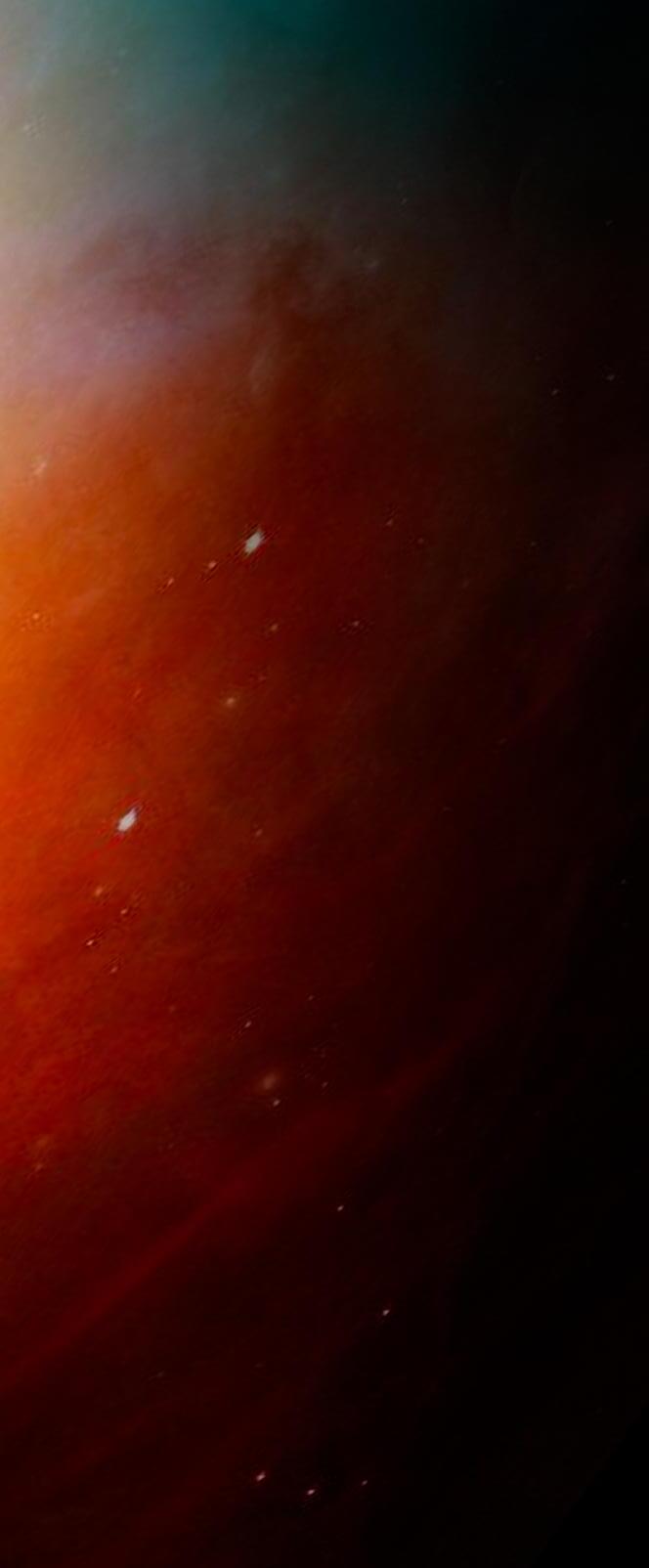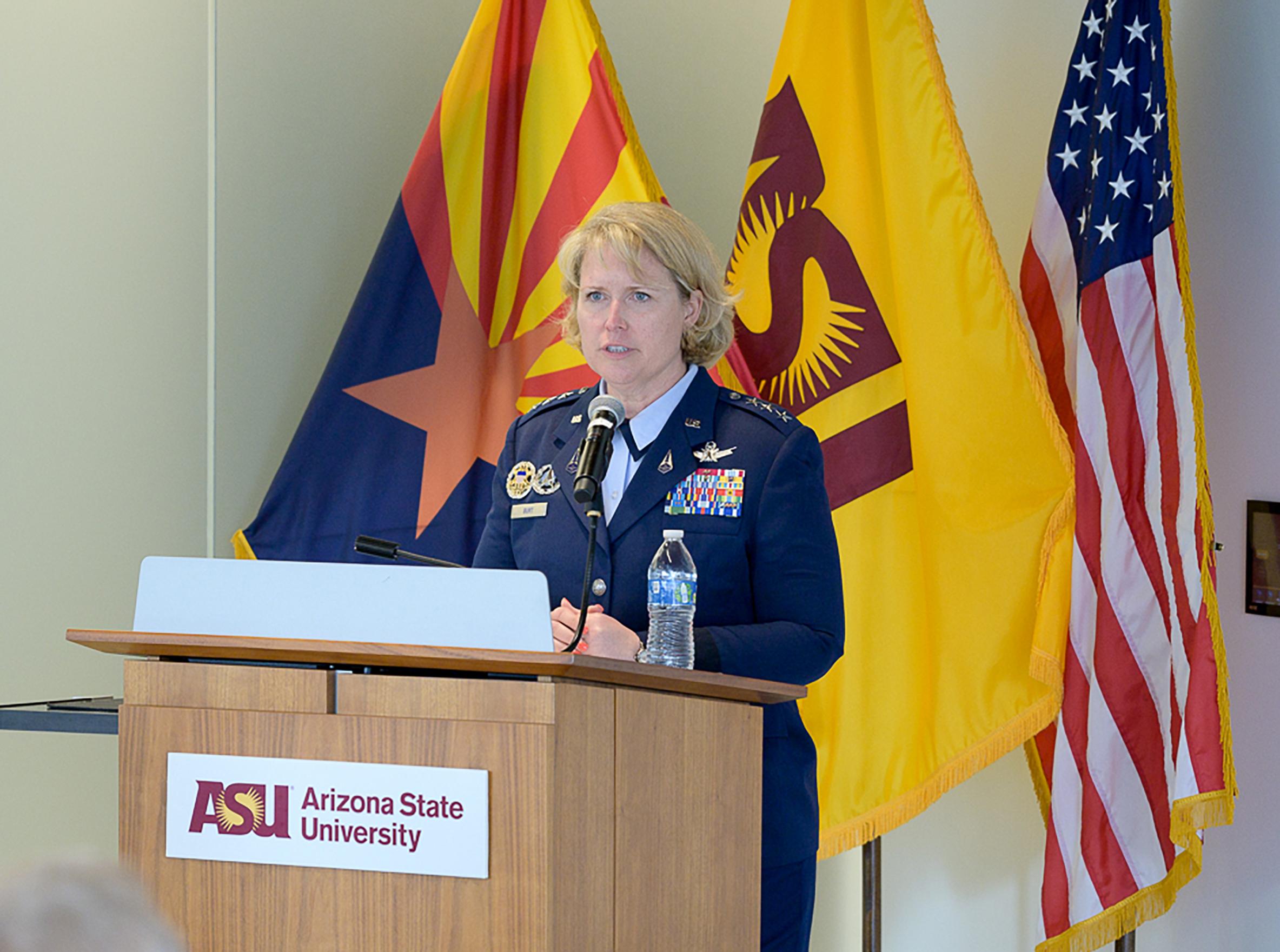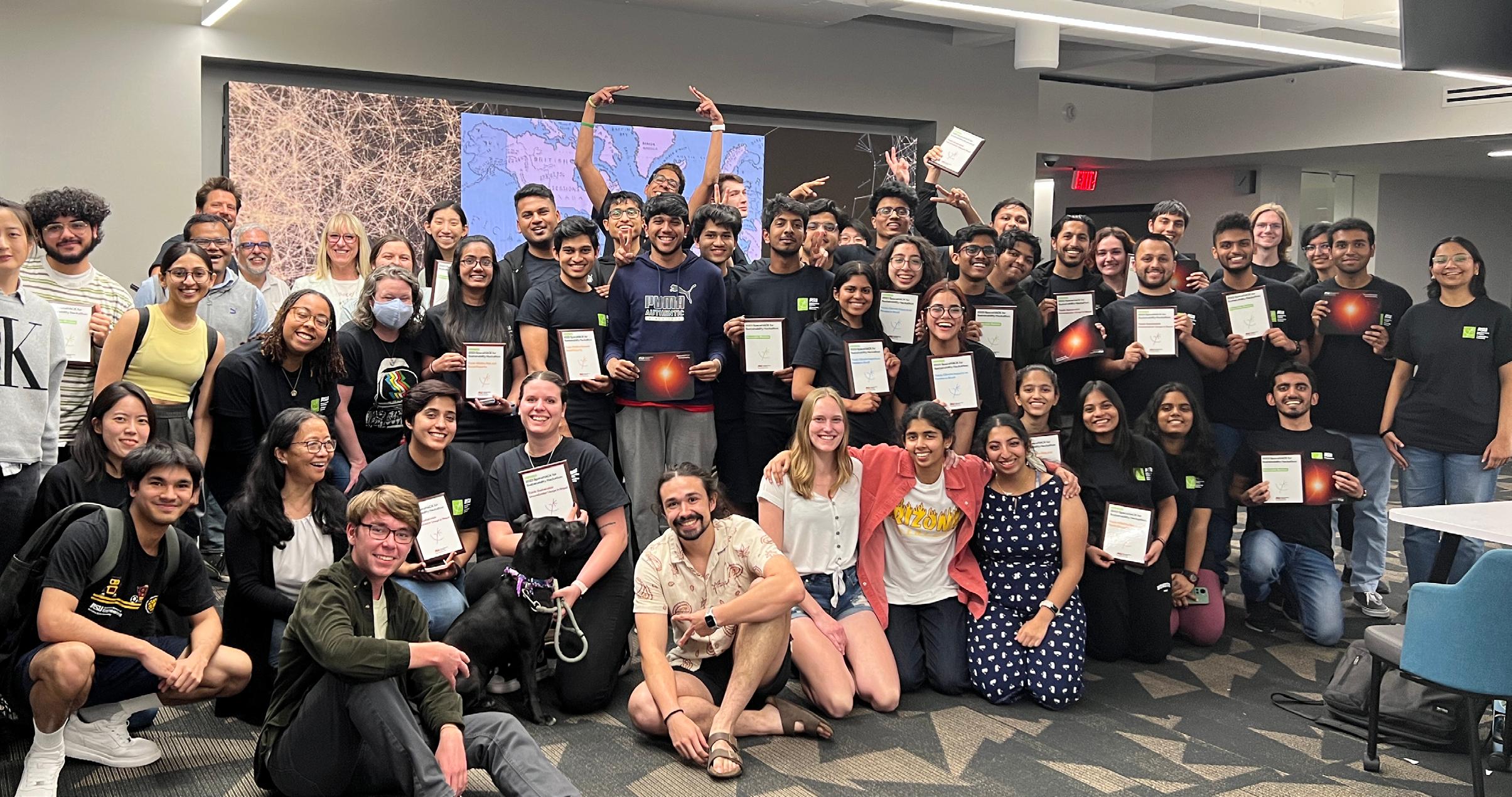
4 minute read
Top stories of the year
Interplanetary Initiative announces new minor in Technological Leadership
The new minor in technological leadership complements and enhances a student’s existing major with key skills in interdisciplinary research, technology design and collaborative leadership. The minor aims to get more students involved in the hands-on, student-driven learning that is central to the Interplanetary Initiative’s other educational programs.
ASU Online students contribute to Interplanetary Initiative research
The Interplanetary Initiative joins other units to support ASU Online students’ academic and professional growth by providing groupbased research opportunities and mentorship thanks to the Online Undergraduate Research Scholars (OURS) program from The College of Liberal Arts and Sciences and EdPlus. In fall 2022, the initiative supported 18 online students working across six of its interdisciplinary research projects, from bringing Mars down to Earth to using space for promoting peace.
Hackathon gathers global students to tackle social, environmental issues
Nearly 150 students from around the world convened in March to take part in the Interplanetary Initiative’s SpaceHACK for Sustainability Hackathon. Participants worked in teams to explore how satellite Earth observations and remote sensing technology from space can be used to better understand and address social inequities, sustainable development and environmental justice issues.
Space is not just for scientists
Deputy Director Jessica Rousset wrote an op-ed for Zocalo Public Square. She argues that in the new space economy, “our greatest innovation will be how we include all aspects of human endeavor in our future in space. We will need effective problem solvers and critical thinkers from all backgrounds and disciplines working together to create the future we all want on Earth, or anywhere else.”
Preventing space war the focus of cross-sector experts at ASU forum

The Interplanetary Initiative sponsored the Preventing Space War forum that included a keynote address from the Deputy Chief of Space Operations for Operations, Cyber and Nuclear for the U.S. Space Force, Lt. Gen. DeAnna Burt, as well as panel discussions featuring viewpoints from cross-sector experts on space domain awareness, space law and armed conflict, and deterring conflict in space.
The amazing thing about the Interplanetary Initiative at ASU is that they are getting people to talk to each other and trying to create an environment that crosses the whole university.
– John Traphagan,
Arizona State University’s newest Interplanetary Initiative Fellow
I was inspired by the hopefulness, wisdom and collegiality of the panelists and moderators. Reframing humans as an interplanetary species can help open all of us to possibilities, to the prospect of a brighter future beyond what we know. The voices in the Sacred Space symposium are valuable exemplars, showing how we might listen and learn from each other. They model how religious traditions can help us look forward and outward as we cooperate to make our universe a home for us all.
– Sacred Space webinar attendee
Programs and events engaged 19K+ people.
The space hackathon was such an amazing opportunity to work with students of all majors on real world problems. This work is the embodiment of what developing solutions should be, bringing together individuals of all backgrounds to solve problems. The hackathon was very beginner friendly. I didn’t come in with much experience with satellite data, but the tutorials and my peers were very helpful. Overall, I had a lot of fun learning more about GIS and how I can use it to solve problems in communities around the world.”
– Kennedy Gourdine, SpaceHACK undergrad participant
Research was something I had not enjoyed, nor was I great at when I first came to ASU. It was something that I struggled with for a while until I switched my major to technological leadership, and then I began to properly utilize it. Now, applying research processes to my tasks or projects feels enjoyable, and I get to learn something new every time.”
– Jeffrey Cascarelli, Technological Leadership BS graduate, May 2023











